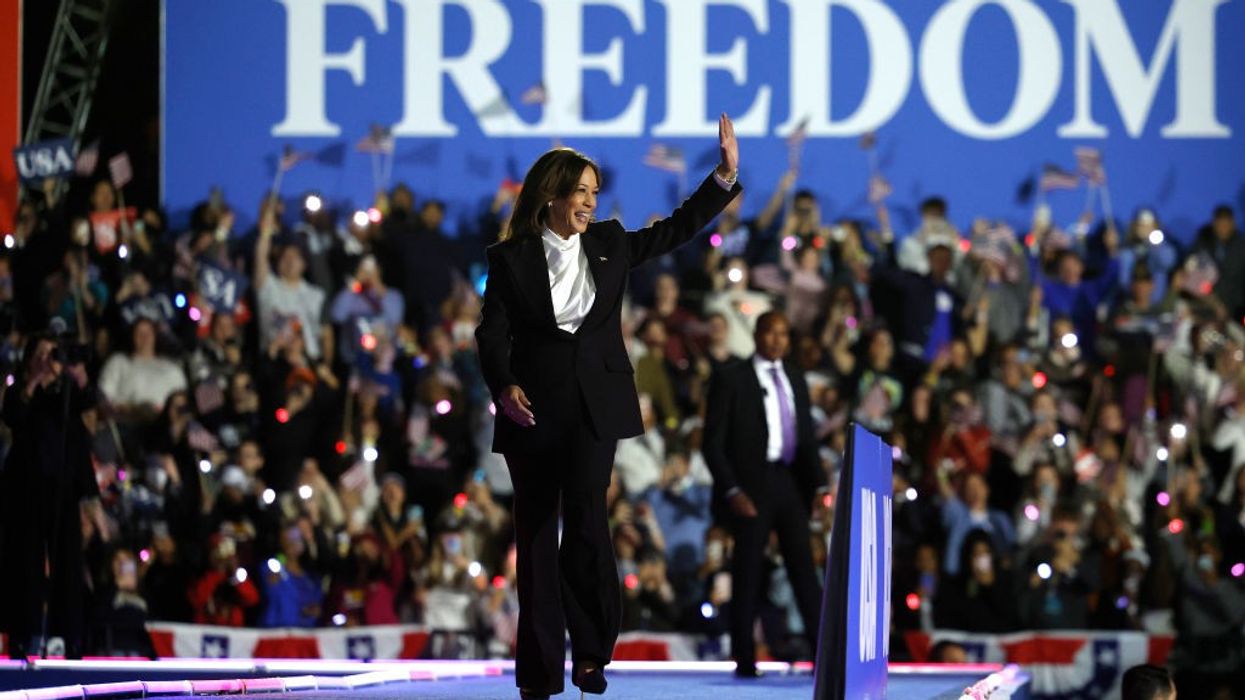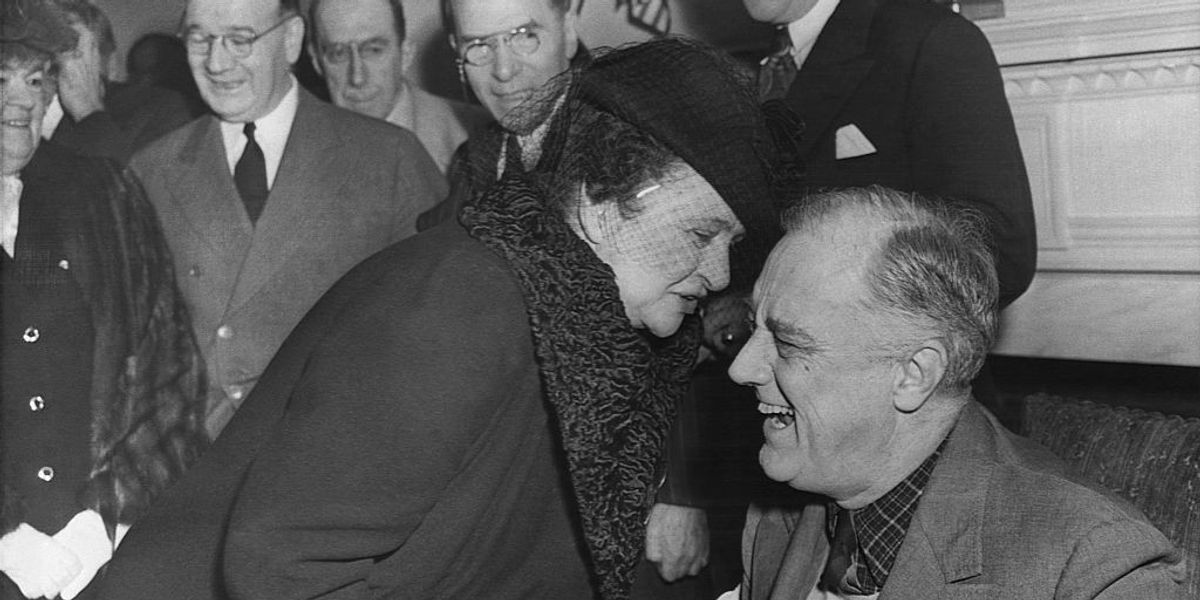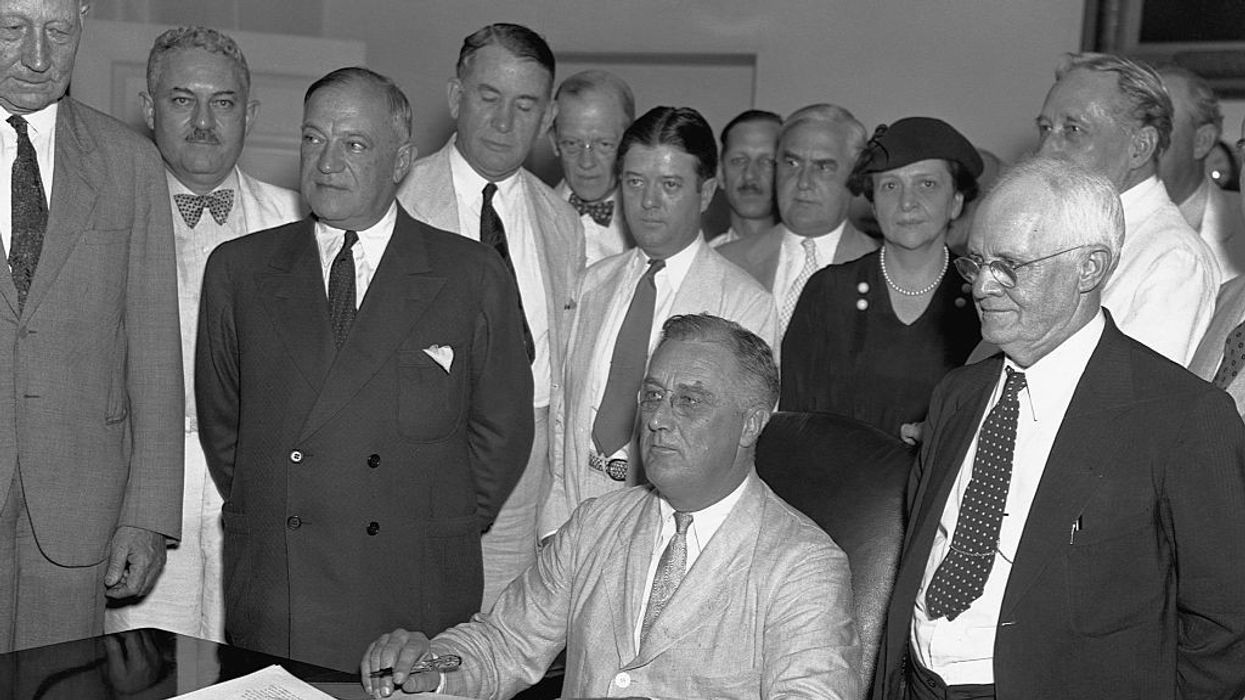"If you're serious about addressing the problems facing American society, a vote for Bernie on Tuesday might be one of the most positively-impactful votes in your e."
In this year's election, there is a pronounced difference between the moderate politicians' track record and what their supporters want. For instance, Democratic voters who ultimately swept Biden to the nomination supported most of Sanders' signature policies over Biden's position on the same issue (this was largely consistent throughout this primary cycle on health care, wealth redistribution, environmental and education policy, financial regulation, money in politics, et al). Indeed, on some issues, the polling data almost defies credulity: a recent Hill/Harris X poll showed 88% of Democrats support Medicare for All, a policy that the party's presumptive nominee stridently opposes.
However, given the unique circumstances surrounding this primary, perhaps it shouldn't be surprising that Democrats voted against their policy preferences. Biden, after all, represented stability: a restoration of the previous Democratic administration, which projected an air of professional competence and decorum. Given the chaos and bigotry of Trump, it's easy to understand the appeal. Then, as the COVID-19 pandemic loomed increasingly over the country, compounded by Trump's anti-scientific idiocies; the desire for a return to the sanity of the Obama/Biden years grew ever stronger.
Still, that doesn't free Biden from the risks inherent in being out-of-sync with his party's base. Indeed, the last two Democratic presidents provide cautionary tales about this problem. Democratic voters stayed home in 1994 and 2010 and the GOP won landslide victories. This time around the stakes are even higher both because of the degree of social, economic, and public health damage wrought by the pandemic; and how frightening the GOP has become under Trump (imagine how empowered the militant right will feel if an incoming Democratic administration fails to act on policing)--and that's to say nothing of the profound tragedy of losing more time without adequately addressing the climate emergency.
All of this can be avoided if Biden moves the left so that he is in sync with the desires not just of Democratic voters, but increasingly with the general public. This isn't a matter of crossing our fingers and hoping Joe sees the light; this means applying pressure. Tuesday's elections are a great way to achieve that end by winning more delegates for Bernie Sanders--and every vote matters because Bernie hasn't yet won enough delegates to ensure a powerful progressive presence at the convention.
The results on Tuesday are key. Here's why. For a motion to be considered on the floor of the convention (by all the delegates), it needs to have 25% support in a committee. The committee make-up is reflective of the general delegate pool--and while Bernie has already won more than 25% of all the elected delegates, committees will include superdelegates too, who overwhelmingly support moderate positions--so, Bernie still needs to win more delegates in the remaining primaries to guarantee that progressives have enough votes to bring major policies, rules, and resolutions to the general body.
"Every vote matters because Bernie hasn't yet won enough delegates to ensure a powerful progressive presence at the convention."
What will that achieve? Well, if Biden doesn't want messy floor fights at his convention--and he doesn't--it basically guarantees in advance that the party will commit to a (somewhat) more progressive platform and not reverse the democratizing DNC reforms that the Sanders movement achieved in 2016. Of course, having a more progressive party platform doesn't necessarily mean anything concrete in terms of policy if Biden becomes president. However, following two election cycles in which Sanders came a close second in the race for the nomination, during which his movement fought prolonged battles within the party, you can be certain that a President Biden will hear about every betrayal of the platform--even as progressives demand more of him. Also, not to be cynical, but whether or not Biden follows through when he becomes president, a more progressive platform will almost certainly help him win the election given the mood of the country.
Most importantly, the country needs a progressive president. Given the scale of our problems, and the level of discontent, nothing else fits the moment. Per economics, we need a New Deal. Given the climate emergency, that has to be a Green New Deal. Per public health, a direct pathway to Medicare for All. Per policing, the embracing of alternative--and transformative--grassroots proposals.
Nothing less than America's social fabric, and even the idea that this remains a prosperous country, is at stake. Our next president needs to step up in profound ways.
Biden has said he wants to be an FDR-like president; but it's unlikely he's making that case when he's glad-handing Citibank CEO Jamie Dimon. Come January 2021, we need the new Francis Perkins and Harry Hopkins in the cabinet, not neo-liberal zombies Robert Rubin and Larry Summers.
To have any hope of achieving that, we have to make our case every step of the way. Sure, Joe Biden has been a centrist Democrat throughout his long career, but "centrists" dominated the party until very recently. Joe Biden is also a weathervane politician. We have to let him know the wind is in progressive sails these days--that no other political tendency comes close.
The way to do that in New York and Kentucky is to vote for Bernie Sanders; which, paradoxically, is also the best way to support Joe Biden's campaign on Tuesday. A good showing will tip the scales past the 25% goal and send a powerful message in support of the policies America needs.



 The first woman presidential cabinet member, Frances Perkins, is shown greeting President Franklin D. Roosevelt upon his return to the White House from the 1943
The first woman presidential cabinet member, Frances Perkins, is shown greeting President Franklin D. Roosevelt upon his return to the White House from the 1943 
